A resource for children with special needs and their families
The Federation for Children with Special Needs (FCSN), located in Boston with a satellite office  in Western Massachusetts, is recognized state and nationwide as a leader in child advocacy, especially for those children with special needs. Committed to listening to and learning from families, FCSN provides information, support and assistance to parents, their professional partners, and their communities.
in Western Massachusetts, is recognized state and nationwide as a leader in child advocacy, especially for those children with special needs. Committed to listening to and learning from families, FCSN provides information, support and assistance to parents, their professional partners, and their communities.
Working in the areas of children’s health, parental involvement, early intervention, the Individuals with Disabilities Education Act (IDEA), and Elementary and Secondary Education, the Federation oversees over 15 programs statewide related to supporting families whose children have either special education or healthcare needs. These supports can include training, workshops on Individual Education Plan (IEP) development, assisting a child as he/she phases out of the school system, finding support groups, promoting family involvement in school, advocating for a child’s inclusion in a school setting and so much more. An invaluable source for families, the Federation also works to reach out to financially and culturally diverse families who are also in need of support and services.
Visions of Community
On March 4th, Roman Music Therapy Services will again be participating in the Federation’s annual conference, entitled Visions of Community for 2017. An excellent resource for families of children with special needs and the professionals who serve them, people come from all over the state to convene at the Seaport World Trade Center in Boston for a day of information gathering, sharing and work-shopping. Topics of discussion are to include Demystifying Dyslexia: Essential Information about Assessment, Intervention and Support at Home, Physical & Communication Access: Isn’t that the Law?, and Finding and Establishing an Independent Living Facility for your Child, to name only a few.
Keynotes will be delivered by Dr Paula Kluth, author, advocate and scholar working with teachers and families to provide inclusive opportunities for students w ith disabilities, as well as creating a more responsive and engaging school experience for all learners; and Brennan Srisirikul, singer and actor diagnosed with Cerebral Palsy at birth.
ith disabilities, as well as creating a more responsive and engaging school experience for all learners; and Brennan Srisirikul, singer and actor diagnosed with Cerebral Palsy at birth.
As music therapists who have worked with children of all abilities, including those with special needs, our staff will be on hand at the conference to speak to parents, professionals and government agencies about the application of music therapy in conjunction with other services.
Stop by our table for more information, or if you cannot make the conference but have questions about the whether music therapy is right for your child, contact our office!

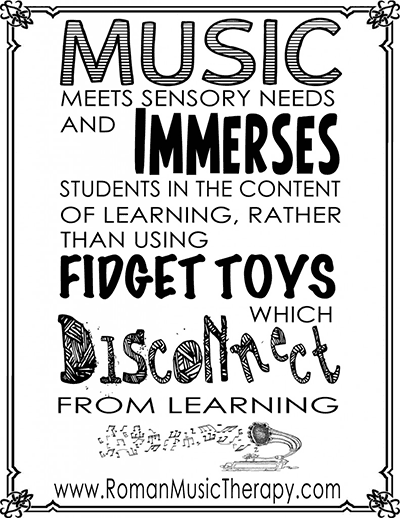
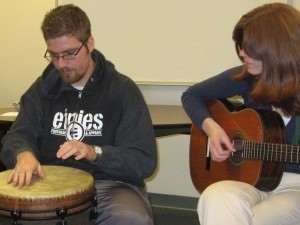 Meredith: In a typical individual music therapy session, the music therapist and client will engage in a variety of musical experiences including:
Meredith: In a typical individual music therapy session, the music therapist and client will engage in a variety of musical experiences including: Meredith: One on One music therapy sessions are a great way to target and increase skills in the following areas:
Meredith: One on One music therapy sessions are a great way to target and increase skills in the following areas: Roman Music Therapy Services is announcing that we have teamed up with Papa Gino’s to offer a brand new option for Birthday Parties for children. Here’s a fun way to celebrate your child’s birthday in developmentally and age appropriate ways in which the kids and grown ups all have a blast!
Roman Music Therapy Services is announcing that we have teamed up with Papa Gino’s to offer a brand new option for Birthday Parties for children. Here’s a fun way to celebrate your child’s birthday in developmentally and age appropriate ways in which the kids and grown ups all have a blast! All great questions. I actually had a special education teacher ask me at the beginning on this school year if I had this written down somewhere and I was surprised when I realized I didn’t. So now it is officially in writing.
All great questions. I actually had a special education teacher ask me at the beginning on this school year if I had this written down somewhere and I was surprised when I realized I didn’t. So now it is officially in writing.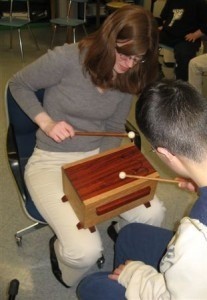 Cool Down
Cool Down Nothing! There is no prerequisite for successful participation in music therapy. The Board Certified Music Therapists at Roman Music Therapy Services work from a client centered music therapy approach. In this model of therapeutic treatment, a client participates as they are and the music therapist uses the tools of music to meet the client and their needs. The client does not need to do anything! Where the client is is where they are, and the music therapist’s job is to meet the client in that place and help them to move towards their educational and therapeutic goals in the music.
Nothing! There is no prerequisite for successful participation in music therapy. The Board Certified Music Therapists at Roman Music Therapy Services work from a client centered music therapy approach. In this model of therapeutic treatment, a client participates as they are and the music therapist uses the tools of music to meet the client and their needs. The client does not need to do anything! Where the client is is where they are, and the music therapist’s job is to meet the client in that place and help them to move towards their educational and therapeutic goals in the music. Parents often call me looking for music therapy services because they know that their child “loves” music. They recognize that music is something, or sometimes the one thing, that their child responds to consistently. Maybe the child is singing songs but not using a lot of language, or maybe the child plays instruments with an apparent awareness of musicality.
Parents often call me looking for music therapy services because they know that their child “loves” music. They recognize that music is something, or sometimes the one thing, that their child responds to consistently. Maybe the child is singing songs but not using a lot of language, or maybe the child plays instruments with an apparent awareness of musicality.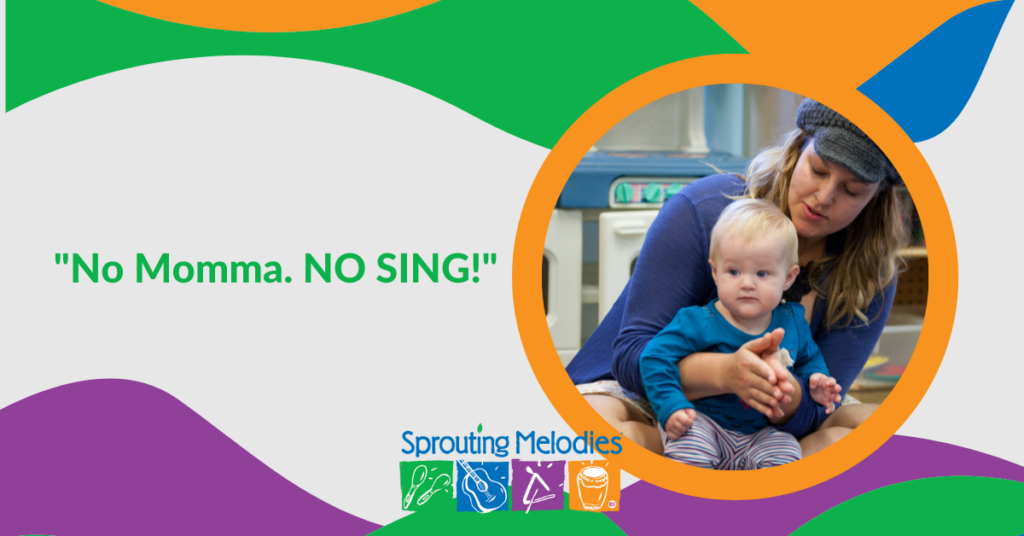
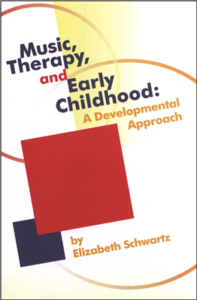
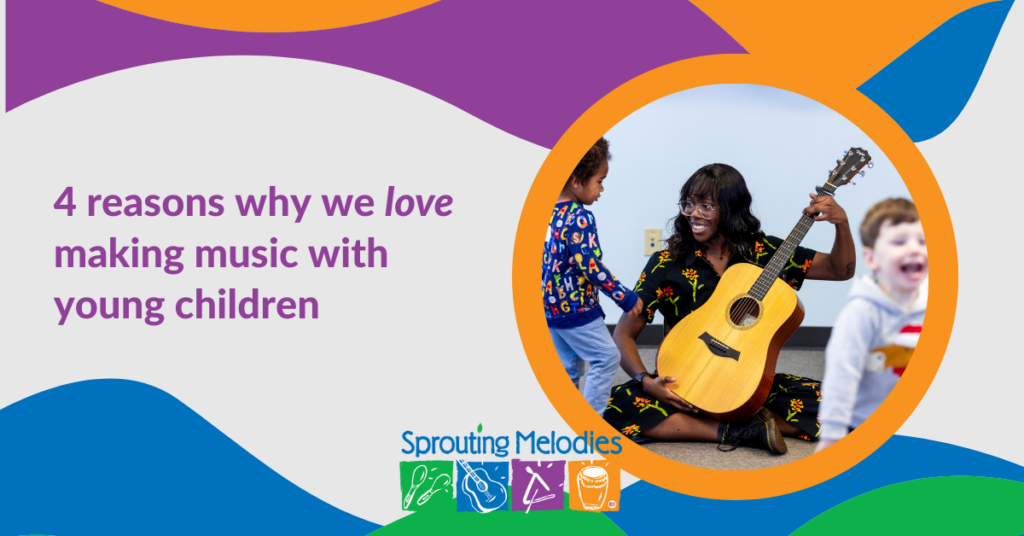
 There is nothing like sharing in the simplicity of music making with a child. As a newborn, music is a profound experience that causes the baby to stop and look around, waiting and watching. As children age, they become more and more aware of the environment and still attend to music as if it is a huge presence in the room. I learn a lot from their experience of music.
There is nothing like sharing in the simplicity of music making with a child. As a newborn, music is a profound experience that causes the baby to stop and look around, waiting and watching. As children age, they become more and more aware of the environment and still attend to music as if it is a huge presence in the room. I learn a lot from their experience of music.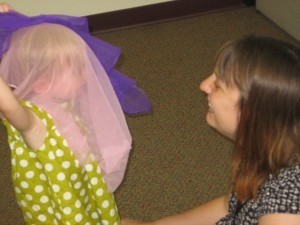 There is a closeness in making music with your child that goes beyond a song. It is our common understanding that songs and lullabies create intimate shared moments for babies and caregivers. With repetition, those shared musical moments create meaningful bonds.
There is a closeness in making music with your child that goes beyond a song. It is our common understanding that songs and lullabies create intimate shared moments for babies and caregivers. With repetition, those shared musical moments create meaningful bonds.